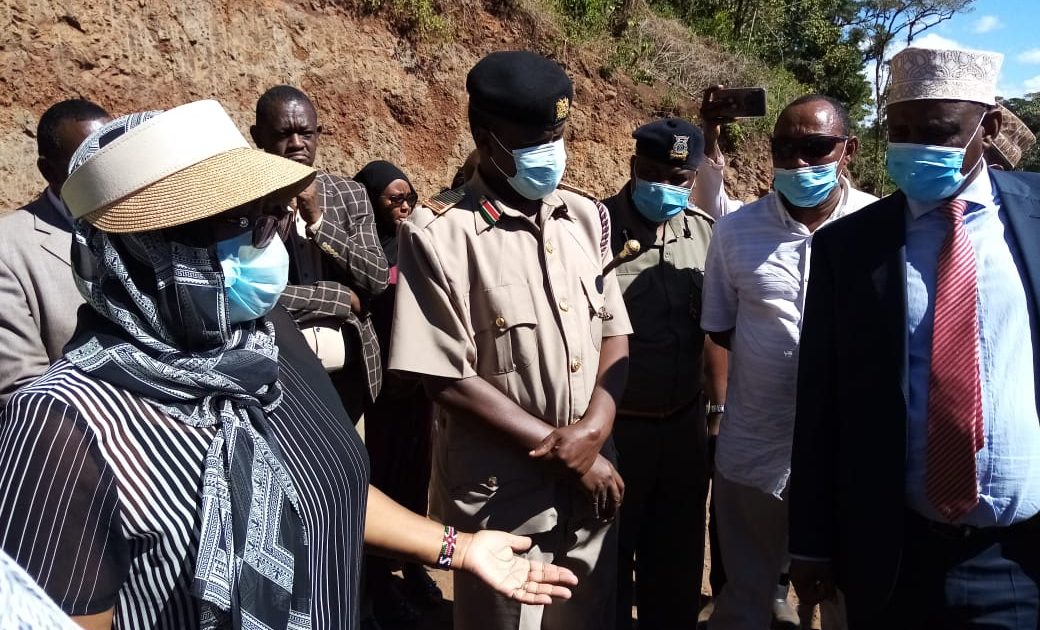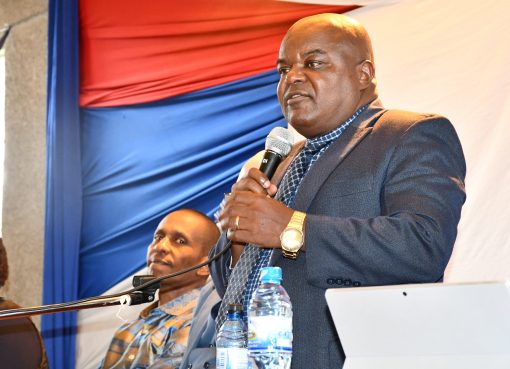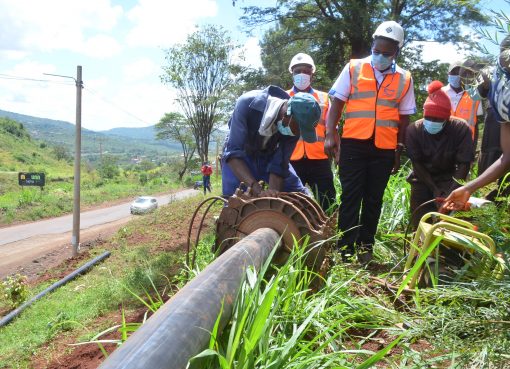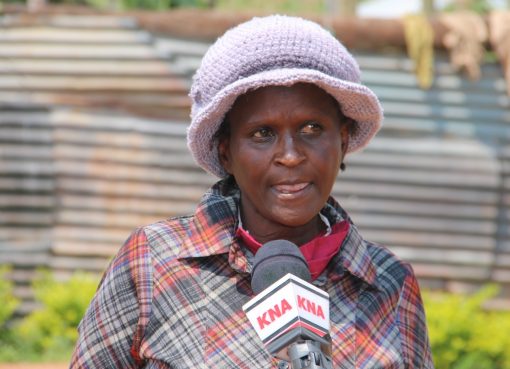The government’s commitment to ending the prevalent water shortage in Marsabit County still stands with projects valued to over Sh2 billion in progress.
Water scarcity has always resulted in skirmishes not only among local pastoralist communities but with their immediate nomadic neighbours of Ethiopia who get sucked into the struggle for grazing resources.
The climate change phenomena has complicated the situation as boreholes dry up and become saline due to heat waves making the dry spells harsher and prolonged.
Water, Sanitation and Irrigation CS Sicily Kariuki expressed concern that Marsabit town residents would have to wait for another eight months to be connected to wholesome water supply after a contractor attempted to play games and trailed behind schedule.
While on a water and sanitation projects inspection tour in Marsabit County, CS Kariuki regretted that the Marsabit water infrastructure project that was set to be completed by end of January 2021 would be pushed ahead by another four months because the contractor is at less than 60 percent of completion.
The Sh1.7 billion project, a Kenya towns sustainable water supply and sanitation program, is jointly funded by the African Development Bank (AfDB) and the Kenya government.
The project which aims at remodeling the recently created Marsabit municipality by enhancing the water supply from 255.42 m3 per day to the current demand of 4330 m3 per day is being implemented by the Northern Water Works development Agency (NWDA) which has contracted a Chinese firm Sinohydro Corporation limited.
An attempt by the agency for the CS to by-pass the proposed Bakuli 4 dam construction site which is located in the middle of Mt Marsabit forest citing insecurity failed after she insisted on inspecting the progress of the source works.
Ms. Kariuki who had also flown to Forole in North Horr Constituency to inspect the construction of a Sh250 million peace dam project could not hide her disappointment after she found out that no work has been going on.
The CS cautioned that development projects should be implemented prudently and within the stipulated time so as to accelerate development by not allowing gaps that window for corruption.
Ms. Kariuki who was accompanied by Marsabit governor Mohamud Ali, County Commissioner Paul Rotich and NWDA chief executive officer Abdikadir Osman reiterated the government’s determination to avail clean water and sewerage services to the residents of Marsabit.
Construction of the proposed 300,000m3 capacity Bakuli 4 dam is expected to discharge adequate water to an approximated population of 37,000 people.
She disclosed that President Uhuru was personally committed to finding a permanent solution to the water scarcity problem which would not only transform the lives of locals but also enhance good relations with the neighbouring Ethiopians.
She directed the County Commissioner who is the chairman of the county development implementation committee (COICC) to spearhead the hastening of the completion of the remaining works so that the project is completed as planned.
“We do not only want to improve in the access and availability of water supply services but to make it sustainable,” the CS said adding that this would also catalyze commercial activities, drive economic growth, create employment opportunities and mend on the quality of life of residents.
She disclosed that another Sh100 million is being used to drill boreholes and to desilt water pans within the Forole area where local pastoralists have been clashing with livestock herders from neighbouring Ethiopia who cross over during times of drought in search of grazing resources.
The super dam and the boreholes are set to be completed by December this year with the CS directing the Misaba contractor to speed up completion of the project which started in January, this year.
According to the Cabinet Secretary, efforts were being made to appease the pastoralist communities (Gabra and Oromo) that reside along the border to enable them share water once the project is completed.
“We as the government are concerned that women and children are the ones shouldering the burden of searching for water which is not easily available instead of using this time more productively,” she observed.
The CS advised Marsabit residents to start taking an active role in efforts to mitigate climate change that currently manifest through reduced regeneration of pasture, floods, frequent droughts and heat waves that have led to salinity and the drying up of boreholes.
She appealed for growing trees and less charcoal burning activities saying the fragile ecosystem could not sustain such commercial activities.
Governor Ali thanked the Jubilee administration for the support adding that water scarcity remained the main challenge to residents of Marsabit.
The governor called on the contractors to follow guidelines and also to stick to timelines in order to complete the projects as planned and ease the suffering of the residents.
“What is most encouraging is President Uhuru’s government willingness to address the problems afflicting the people of Marsabit,” noted Governor Ali.
He pointed out that Forole was a strategic grazing area where herders converge in search of grazing resources during the dry period.
Governor Ali added that the Forole peace dam project with a capacity of 64,800 M3 would serve about 2000 households and was expected to effectively address the issue of conflict that emanates when herders scramble for the scarce commodity.
By Sebastian Miriti





